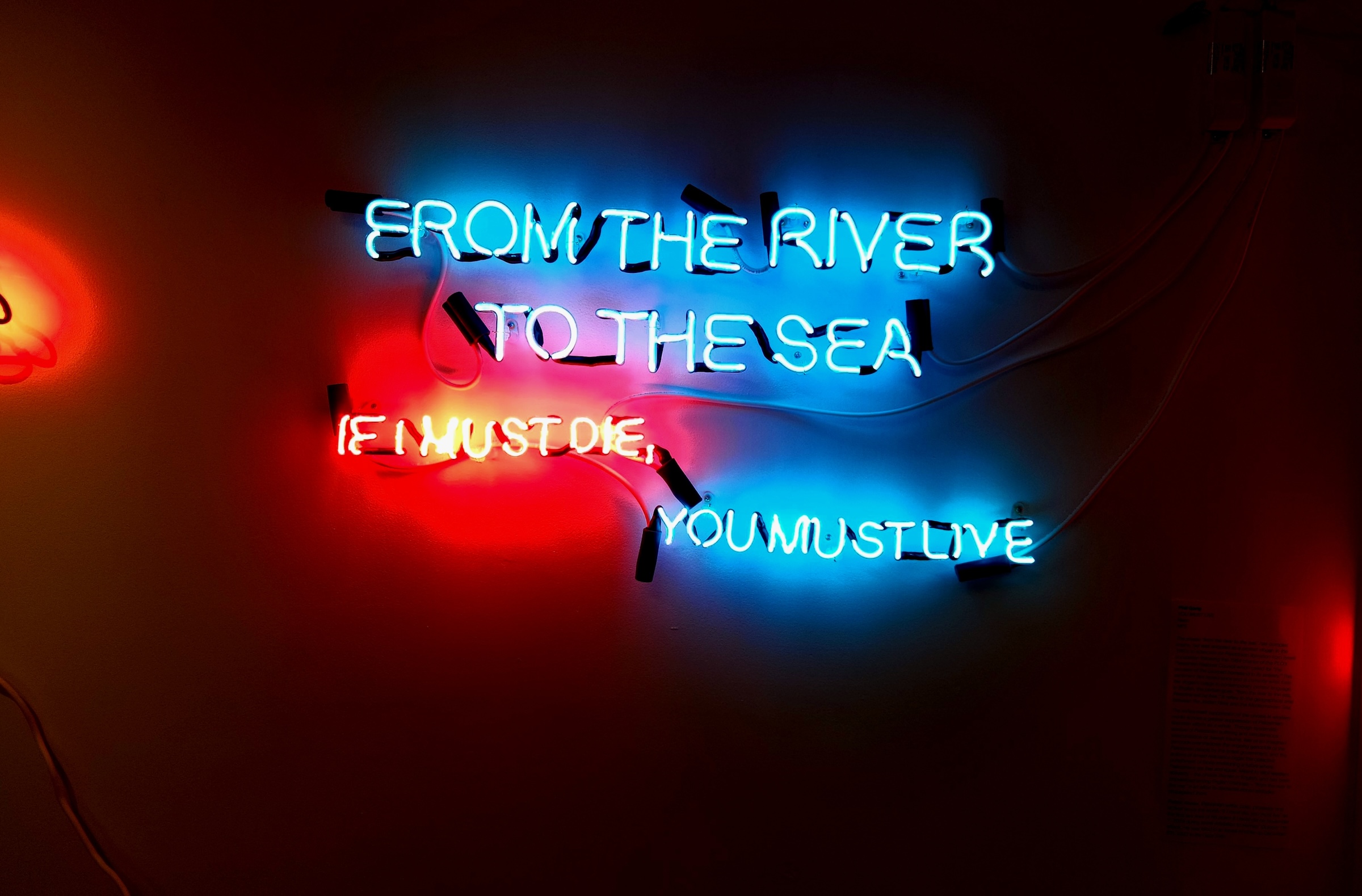Eight months after removing Palestinian-American employee Phil Garip’s artwork from a staff show because it included the phrase “from the river to the sea,” the Brooklyn nonprofit UrbanGlass has issued a public statement apologizing and expressing regret over the decision.
The glass center published the statement on Instagram on October 19 and made reference to an ongoing exhibition featuring the work of a different artist, Nooshin Rostami, that includes the same phrase. The post notes that the closing reception for the current show will include a conversation with Garip and Rostami.
UrbanGlass’s board excluded Garip’s neon piece “YOU MUST LIVE” (2024), which depicts the popular expression of Palestinian solidarity “from the river to the sea,” from the staff exhibition Fundamental Particles last March. The phrase, UrbanGlass’s board told Hyperallergic in a statement at the time, was “received by many — including members of the UrbanGlass community — as a literal or stochastic call for violence against them.”
A majority of UrbanGlass staff members withdrew from the show in support of Garip and displayed their works at the People’s Forum in Manhattan instead, along with “YOU MUST LIVE.”

“We understand that this phrase carries significant emotional and political weight and, in retrospect, the board recognized that the censorship of Phil’s [Garip’s] work was wrong,” reads UrbanGlass’s most recent statement, which goes on to laud Garip as a talented artist, educator, and “advocate whose voice deserved to be heard.”
“The exclusion of his work not only silenced an artistic expression but also contributed to the widespread marginalization of Palestinian artists and others who are committed to free expression,” the statement continues.
UrbanGlass added that it will update its exhibition policies to protect “diversity of expression” and will publish the new protocols in the coming months.
Garip, who told Hyperallergic that he recently left his role as an educator at the nonprofit, said that he and an autonomous assembly of glass artists known as the Glass Solidarity Collective negotiated with UrbanGlass’s board for months in order for the nonprofit to post the apology.
“I’m glad UrbanGlass was willing to work with us, the Glass Solidarity Collective, but at the end of the day it’s the same problem — the people who are most affected by the oppression must also do the labor to make change,” Garip explained with regard to the negotiations.
“We were met with resistance at every step, and we all gave a ton of time to the effort,” he continued. “While the collective represents a large constituency within the community, this [the apology] did not happen from within the organization, and there are still solid pillars of Zionism embedded there.”

The collective, a group that formed in the months after the incident, said in a statement to Hyperallergic that “the public apology would not have been possible without applying pressure from our side and a level of reflection, willingness to listen, and transparency from some members of UrbanGlass’ leadership and staff.”
“The apology is one step of this reconciliation process, not the only or final goal,” the collective’s statement continued. “Our aims are for material actions to repair the community and to bring accountability towards a communal environment free of discrimination. We are hopeful that UrbanGlass will continue to prioritize taking these material actions as a part of our future negotiations.”
The nonprofit’s board did not answer Hyperallergic‘s specific inquiry about the decision to display Rostami’s artwork with the words “from the river to the sea” months after excluding Garip’s artwork over its inclusion of the same phrase. A spokesperson said that the recent Instagram post “speaks for itself, as it best reflects our organization’s desire to heal our community and work together to make sure that UrbanGlass can continue to focus on its mission centered on experimenting with and using glass as a creative medium.”
The conversation between Garip and Rostami and moderated by independent curator Zeljka Himbele is set to take place at 7pm on Tuesday, October 29, as a part of the closing reception for A Walk in the Woods.
“This has always been about envisioning a free Palestine for me, and I’m hopeful that small steps forward like this one gets us closer to that end,” Garip concluded, expressing hope that others will reflect on the collective’s perseverance and implement similar approaches in their own communities.

